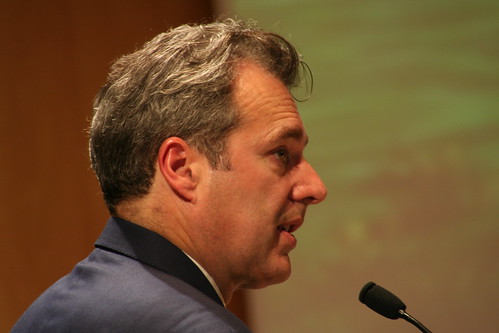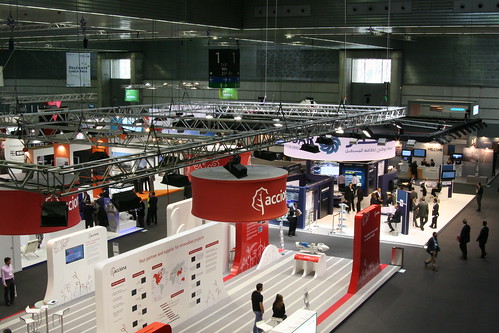One of the more interesting sessions at the European Future Energy Forum was the one on Green building (in fact it was two back to back sessions, one titled Green building and the second was titled Energy Efficiency in Commercial and public spaces).
Not surprisingly, given their heavy involvement in the organisation of the event, both talks referenced the Masdar project.
Peter Sharratt (pictured above), the Global Director, Energy & Sustainability Services for WSP Environment, keynoted and gave a superb talk taking at first a very macro view and drilling down to some really good examples from completed projects.
One of the more interesting tidbits I took from Peter’s talk was around how Masdar will be an entirely carless city. There will be large car-parks at the entrances to the city where people will leave their cars. They will then use electric Personal Rapid Transit (PRT) vehicles to go to their destination moving around the underground of the city (below street level). I asked some of the Masdar representatives how deliveries to shops would be handled, for instance and he said they would have a flat-bed equivalent of the PRTs which would handle that.
Peter said that due to the lack of compressors and more especially the lack of traffic, Masdar would be the world’s quietest city. As someone who lives beside a heavily trafficked street in Seville, this resonates hugely with me!
Interestingly this was a theme also picked up at the sustainable transport session!



